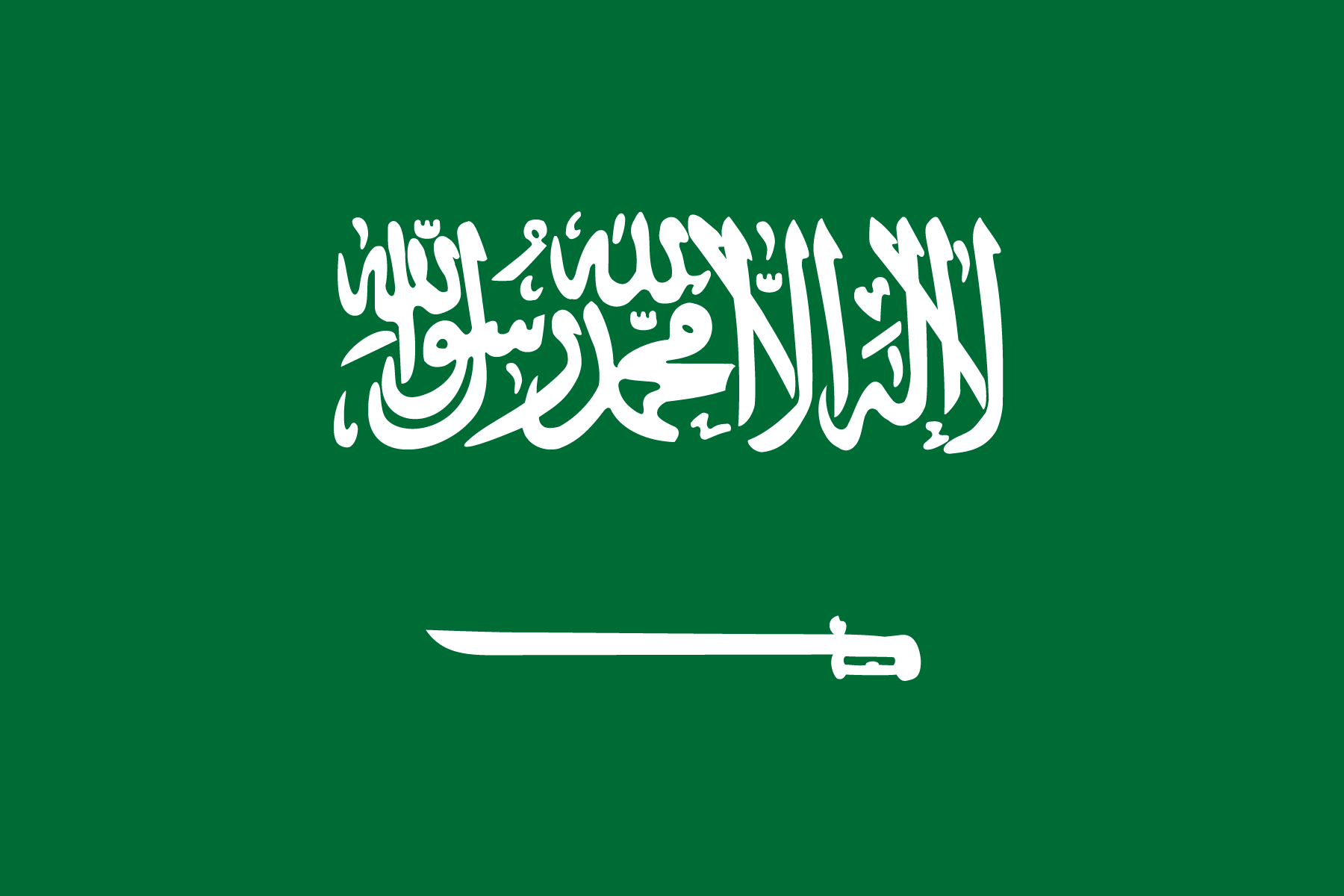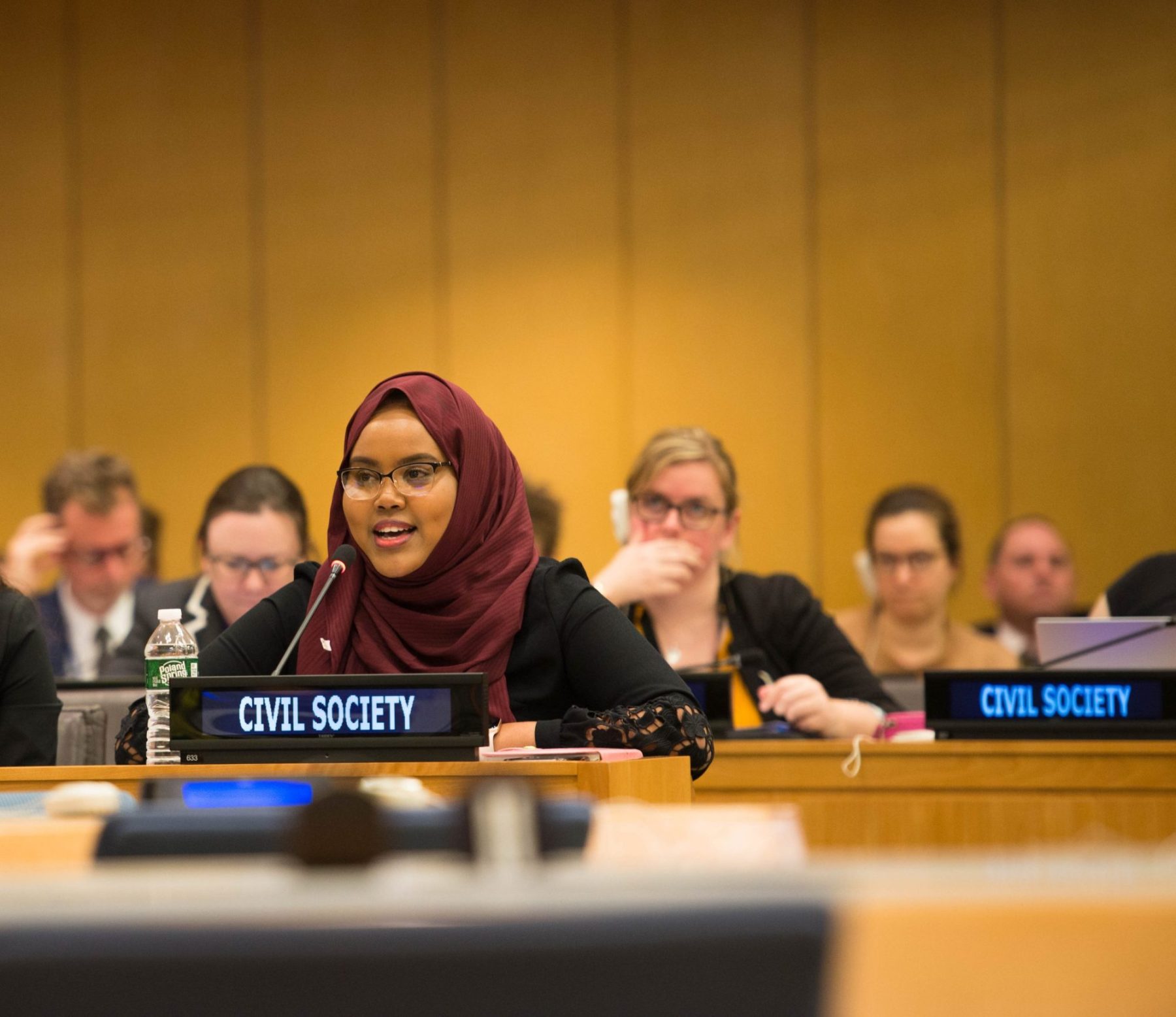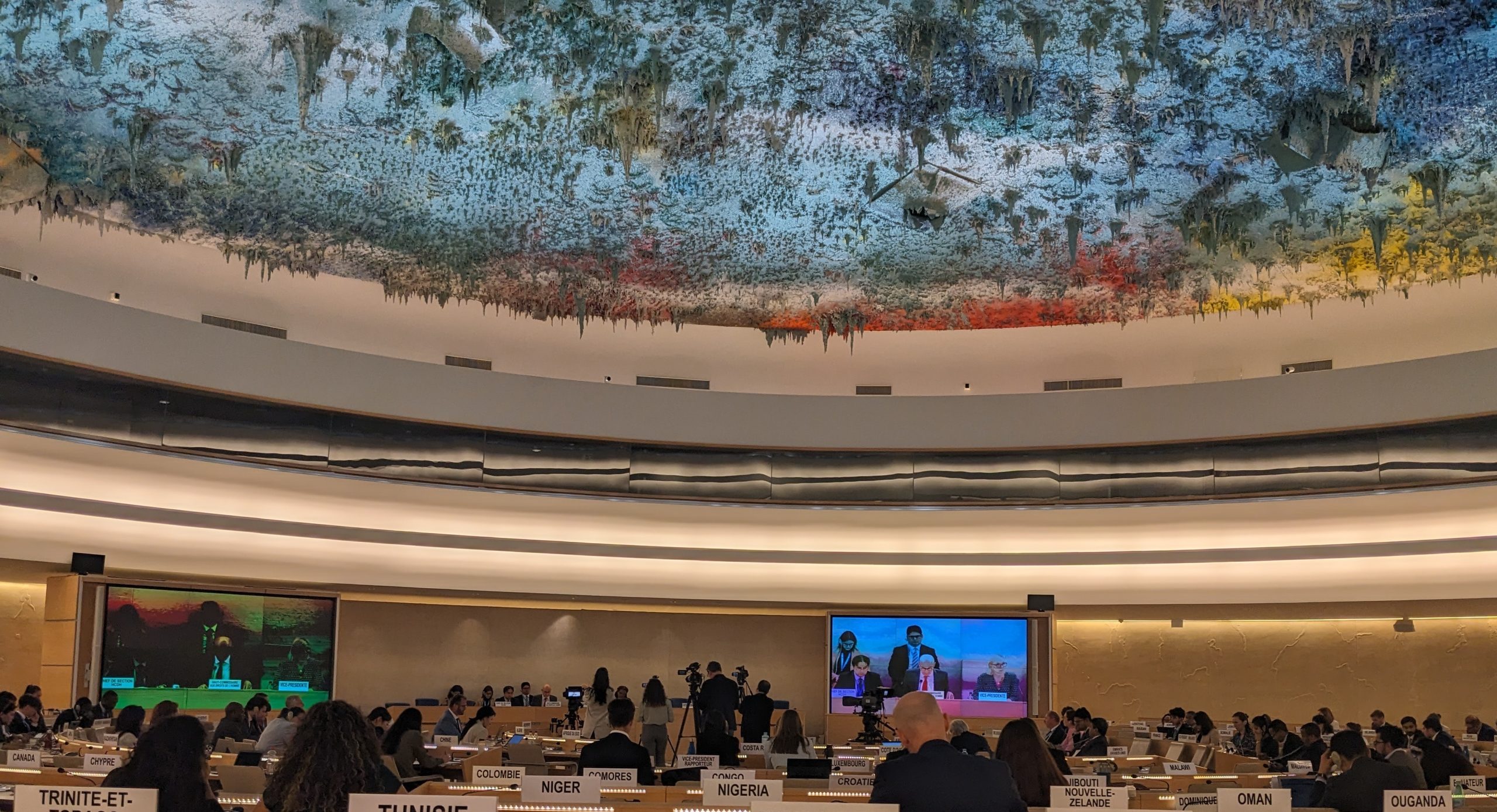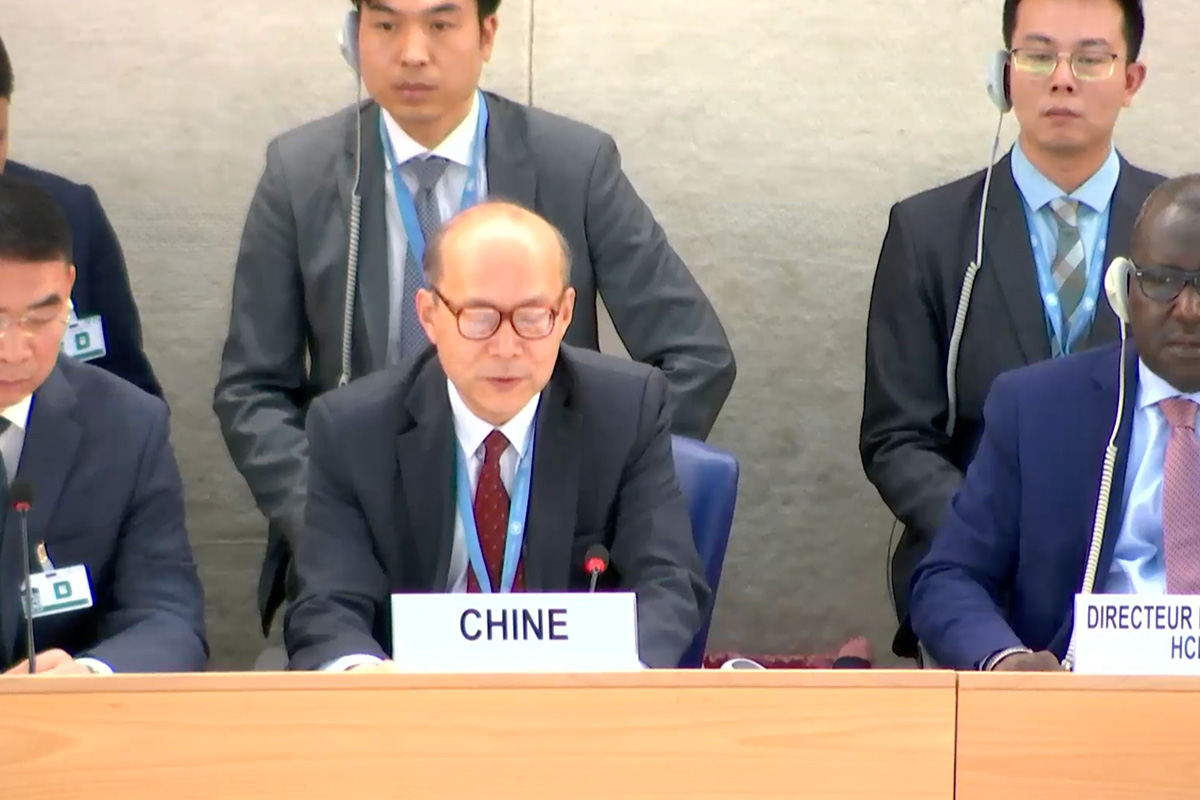With the adoption of its report on 13 February, the ECOSOC Committee on NGOs (Committee), completed its first Regular session for 2023. The Committee reviewed 560 applications for consultative status (321 deferred and 239 new) from 66 countries during the session. Of these, only 214 NGOs (158 new and 56 deferred) were successfully recommended for special consultative status.
Despite change in membership, accreditation rates remain low
The Committee welcomed 10 new members for the next four year term – Algeria, Armenia, Cameroon, Chile, Costa Rica, Eritrea, Georgia, Liberia, the UK and Zimbabwe. They joined 10 incumbent members Bahrain, China, Cuba, India, Israel, Nicaragua, Pakistan, Turkiye, and the US.
While several Committee Members emphasised the value of civil society participation and contribution at the UN, the Committee granted accreditation to only 38.2% of the applications for consultative status. ‘It is deeply problematic that civic space in 11 of the current 19 Committee members, is either completely closed (Bahrain, China, Cuba, Eritrea and Nicaragua) or repressed (Algeria, Cameroon, India, Pakistan, Türkiye and Zimbabwe), according to the CIVICUS Monitor tracking civic space’ said ISHR’s Maithili Pai. Unsurprisingly Member States responsible for deferring the granting of consultative status to most NGOs this session have closed or repressed civil space’, Pai added.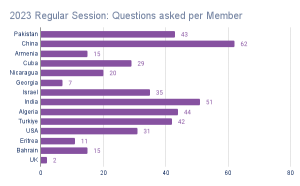
* No questions asked by Cameroon, Chile, Costa Rica, Liberia and Zimbabwe. All figures are based on ISHR’s in person monitoring of sessions.
Debate on reopening NGO applications
During the session a heated debate ensued highlighting politicised positions adopted by Committee members. Indonesia (not a Committee member) urged the Committee to reconsider recommendations to grant consultative status to two Indonesian NGOs made the previous day on the basis that they were separatist organisations whose work undermines Indonesia’s sovereignty. China, India, Nicaragua, Pakistan, Bahrain, Cuba, Algeria and Eritrea (with India most vocal) endorsed the request while confirming that it should not create a precedent. The UK and the US strongly stressed that reopening the review of an NGO should not create a precedent, and while neither called a vote on the proposal, the US highlighted that the position of several Members endorsing the request was inconsistent with previous positions on reopening applications. The US also noted that views expressed by the NGOs were within their rights to freedom of expression and requested more information on Indonesia’s allegations. The Committee ultimately by consensus re-opened the review of the two NGOs that work on human rights of West Papuan people and Committee members Algeria and China posed questions leading to their deferral.
Resource deficit leading to systemic inefficiency and barriers to NGO participation
The under-resourcing of UN DESA in comparison to its workload was discussed again this session by Member States and UN Staff. The Director of OISC DESA emphasised the need for greater resources to support over 6,000 accredited NGOs. The gravity of the problem was also evident when States complained about receiving only minutes to review responses provided by NGOs due to delays by UN DESA in transmitting questions to NGOs and uploading answers received .
Urgent need for hybrid modalities in interactive modalities in Q&A
Eight applicant NGOs participated in the interactive question-and-answer segments this session. ‘Travelling to New York to participate in-person is an unnecessary and onerous burden on NGOs, particularly from the Global South, many of which are already facing severe hurdles in receiving ECOSOC accreditation due to the Committee’s politicised practices’ said ISHR’s Maithili Pai. ‘Given the large number of pending accreditation applications, we urge Committee Members to institute hybrid modalities expeditiously, a proposition also supported by some Committee Members, to enable the Committee to fulfil its mandate effectively, including improving practical arrangements on greater use of modern information and communication technology,’¹ Pai added.
¹ECOSOC resolution 1996/31, Part XI, para 69.
Download as PDF
